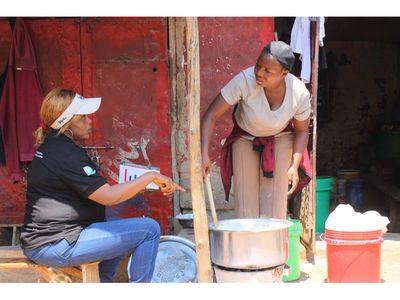
On July 28, 2025, Tanzania’s Industry and Trade minister Selemani Jafo dropped a bombshell: foreigners will be banned from operating in 15 types of small businesses. It’s a sweeping move that could dim the East African Community (EAC)’s dream of open borders and shared prosperity.
Under the “Business Licensing (Prohibition of Business Activities for Non-Citizens) Order”, foreigners are now barred from engaging in everyday trades such as retail and wholesale (except for supermarkets), hair salons unless inside hotels, small-scale food vending, mobile money kiosks, electronics repairs, tour guiding, parcel delivery, cleaning services, non-casino gambling, curio shops, real estate brokerage, small-scale mining, and even running local newspapers or radio stations.
Foreigners are also banned from buying crops directly from farmers, cutting them out of farm gate transactions vital to many rural cross-border economies.
Penalties are steep. Foreigners caught in these trades face fines of up to 10 million Tanzanian shillings (around Ksh510,000 or $4,000), six months in jail, or deportation. Tanzanians who employ or rent premises to them risk fines of Tsh5 million or three months’ imprisonment. Current foreign-owned businesses in the banned sectors will not have their licences renewed once they expire.
Though the policy applies to all foreigners, it’s Kenya that has protested most vocally—because its citizens are hardest hit. Estimates suggest between 40,000 and 250,000 Kenyans run small or informal businesses in Tanzania, many in the exact sectors now off-limits. For them, this isn’t policy on paper—it’s a blow to daily survival. From hair stylists in Arusha to traders in Namanga and Holili, the effect will be immediate.
Tanzania’s concerns aren’t entirely baseless. These trades have low entry barriers, and it’s reasonable to want locals to benefit. But banning foreigners outright is a blunt instrument. Most of these businesses are not run by wealthy foreigners elbowing out locals, but by migrants scraping by on razor-thin margins. The Burundian woman flipping chapatis is not Amazon. The Kenyan kiosk owner in Mwanza is not Unilever. They’re part of the same grassroots economy Jafo claims to be protecting.
And while the move may win political points with them, it risks opening the door to narrow-minded policies that undermine East Africa’s greatest asset: the freedom of its people to move, trade and grow together. A Congolese curio dealer or a Ugandan hairdresser could now be penalised not for unfair competition, but simply for being foreign.
Kenya’s trade officials warn this kind of economic nationalism erodes trust and undercuts the foundations of regional cooperation. The EAC’s Common Market Protocol, ratified in 2010, guarantees the free movement of people, goods, services and capital. Tanzania reaffirmed that commitment only last year.
There’s an old saying along the Swahili coast: “Mgeni aje kwa amani”—let the guest come in peace. For decades, Tanzania was defined by this spirit—offering refuge to liberation movements, and sheltering Rwandans, Burundians, Ugandans and Mozambicans fleeing war or repression. This new posture signals a departure from that legacy.
A smarter alternative would be to cap foreign participation in certain sectors—say, limiting it to 35 per cent—or to encourage local hiring, training, and partnerships.
But with a general election looming in October, the long-ruling Chama Cha Mapinduzi (CCM) appears to be playing to nationalist sentiment. The move is framed as a means of protecting jobs for Tanzanians. In Dar es Salaam’s sprawling Kariakoo market, where street-level trade defines everyday life, that message resonates. Why, many ask, should foreigners be selling chapatis or braiding hair, when Tanzanians are also struggling to make ends meet?
But in trying to protect locals, Tanzania may be cutting off the very lifeblood of its market vibrancy.
Take the Burundian woman running a chapati stall in Kariakoo. Her flaky, golden flatbreads are a morning staple for shop clerks and traders. Her stall isn’t competition—it’s a benchmark. Or the Congolese tailor in Mwanza, who buys Tanzanian fabric, hires local workers, and crafts vitenge wedding dresses that make brides feel royal.
These aren’t exceptions. They’re the norm in a region where small traders cross borders daily—formally and informally—creating value, not stealing it.
This is what the EAC was built for. Kenya has leaned into it, with open markets like Gikomba where Tanzanian mitumba traders thrive.
A 2022 EAC Trade Report found that 30–40 percent of cross-border trade is driven by small-scale operators—mostly women—selling goods from maize to fabric in towns like Busia, Namanga and Mutukula. The United Nations Conference on Trade and Development (UNCTAD) values this trade at $1–2 billion annually. A 2021 African Union report estimated over 4 million migrant workers in East Africa—many in the very jobs Tanzania just banned.
When a country draws such hard lines, it sets a precedent. Today, it’s chapati stalls and tailoring. Tomorrow, it could be digital services. It chips away at the quiet, everyday regional integration that has taken decades to build, and kills the belief that East Africa can be more than the sum of its parts.
East Africa loses when walls go up. It thrives when the stalls stay open. Chapatis, after all, don’t need passports. Neither should the people who make them.
The author is a journalist, writer and curator of the Wall of Great Africans. X@cobbo3Read More






